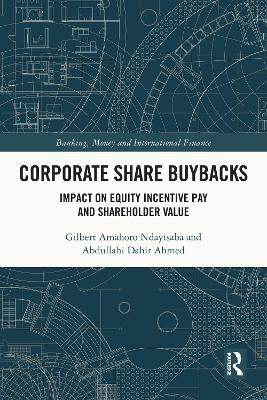Banking, Money and International Finance
1 total work
Corporate Share Buybacks
by Gilbert Amahoro Ndayisaba and Abdullahi Dahir Ahmed
This book integrates elements from agency theory and signalling theory and draws upon recent changes in the Australian payout policy and incentives pay for risk-averse employees to provide theoretical and empirical analyses that explain the paradox of the popularity of on-market stock buyback activities in a market environment characterised by reasonably high share prices.
The authors utilise a dynamic model that rationalises this paradox, which is divided into three components. The first component predicts that executives may be conducting on-market stock buyback programmes (SBPs) to adjust equity-based remuneration for risk-averse employees, thereby motivating their performance without granting them additional costly equity incentive plans (EIPs); the second component predicts that companies are likely to invest in SBPs to increase the ownership stakes of employees in the firm, thereby inducing risk-averse employees to increase their productivity which increases firm value; while the third component predicts that shareholders would benefit from incentives-induced buybacks if a firm’s opportunity cost of funds spent on buybacks is less than its inverse price-to-earnings ratio.
The authors’ findings highlight differences in the market responses towards announced repurchase motives, implying that not all incentives-induced buybacks are value-destructive buybacks. Specifically, the widespread assumption that SBPs stifle investments in human and capital stock may be subjective as the findings show that incentives-induced buybacks may be value-creative or value-destructive depending on share repurchase motives of SBPs.
This book will be a useful guide for scholars and researchers of finance, corporate finance, financial economics and financial accounting.
